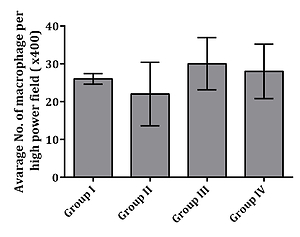Current issue
Archive
Manuscripts accepted
About the Journal
Editorial office
Editorial board
Section Editors
Abstracting and indexing
Subscription
Contact
Ethical standards and procedures
Most read articles
Instructions for authors
Article Processing Charge (APC)
Regulations of paying article processing charge (APC)
HEPATOLOGY / RESEARCH PAPER
Lycopene prevents cisplatin-induced liver tissue damage, without affecting concentrations of TNF-α or iNOS/NO inflammatory pathway
1
Clinic for Infectious Diseases, Clinical Centre Niš and University of Niš, Faculty of Medicine, Niš, Serbia, Serbia
2
Clincal Centre Priština, Gračanica, Serbia, Serbia
3
Faculty of Medicine, University of Priština, Kosovska Mitrovica, Serbia, Serbia
4
Department of Biochemistry, Faculty of Medicine, University of Niš, Zorana Đinđića 81, 18000 Niš, Serbia, Serbia
Submission date: 2020-03-08
Final revision date: 2020-09-02
Acceptance date: 2020-09-03
Online publication date: 2021-05-05
Corresponding author
Dusan T Sokolovic
Department of Biochemistry, Faculty of Medicine, University of Niš, Zorana Đinđića 81, 18000 Niš, Serbia, Serbia
Department of Biochemistry, Faculty of Medicine, University of Niš, Zorana Đinđića 81, 18000 Niš, Serbia, Serbia
KEYWORDS
TOPICS
ABSTRACT
Introduction:
Liver inflammatory response occurring after toxic chemicals injection, such as cisplatin, causes the aggravation in liver damage. Lycopene, a carotenoid, has previously been proven to possess antioxidant, antiinflammatory and antiapoptotic properties. This study objective was to evaluate for the first time the protective effects of lycopene in cisplatin-induced liver damage based on the disturbances in serum and tissue inflammatory parameters. Also, to confirm the extent of changes in inflammation of the studied tissue, a microscopic analysis will be performed.
Material and methods:
Wistar rats were divided into four experimental groups: (I) control; (II) lycopene (2 mg/kg); (III) cisplatin (10 mg/kg) and (IV) lycopene and cisplatin-treated (2 and 10 mg/kg, respectively) animals. After the experiment, we studied changes in serum liver tissue damage associated parameters (ALT, AST, and γ-GT) and liver inflammatory parameters (NO and TNF-α concentrations, myeloperoxidase and iNOS activity, as well as CD68 expression).
Results:
Application of lycopene prevented a rise in evaluated serum parameters induced by cisplatin, while at the same time it did not cause any harmful effect by itself. Lycopene, alone or in combination with cisplatin, decreased the values of all studied liver inflammatory parameters.
Conclusions:
We can conclude that lycopene does not prevent liver tissue inflammatory decalin seen after cisplatin application, however, it prevents tissue damage arising from this cytostatic application.
Liver inflammatory response occurring after toxic chemicals injection, such as cisplatin, causes the aggravation in liver damage. Lycopene, a carotenoid, has previously been proven to possess antioxidant, antiinflammatory and antiapoptotic properties. This study objective was to evaluate for the first time the protective effects of lycopene in cisplatin-induced liver damage based on the disturbances in serum and tissue inflammatory parameters. Also, to confirm the extent of changes in inflammation of the studied tissue, a microscopic analysis will be performed.
Material and methods:
Wistar rats were divided into four experimental groups: (I) control; (II) lycopene (2 mg/kg); (III) cisplatin (10 mg/kg) and (IV) lycopene and cisplatin-treated (2 and 10 mg/kg, respectively) animals. After the experiment, we studied changes in serum liver tissue damage associated parameters (ALT, AST, and γ-GT) and liver inflammatory parameters (NO and TNF-α concentrations, myeloperoxidase and iNOS activity, as well as CD68 expression).
Results:
Application of lycopene prevented a rise in evaluated serum parameters induced by cisplatin, while at the same time it did not cause any harmful effect by itself. Lycopene, alone or in combination with cisplatin, decreased the values of all studied liver inflammatory parameters.
Conclusions:
We can conclude that lycopene does not prevent liver tissue inflammatory decalin seen after cisplatin application, however, it prevents tissue damage arising from this cytostatic application.
Share
RELATED ARTICLE
We process personal data collected when visiting the website. The function of obtaining information about users and their behavior is carried out by voluntarily entered information in forms and saving cookies in end devices. Data, including cookies, are used to provide services, improve the user experience and to analyze the traffic in accordance with the Privacy policy. Data are also collected and processed by Google Analytics tool (more).
You can change cookies settings in your browser. Restricted use of cookies in the browser configuration may affect some functionalities of the website.
You can change cookies settings in your browser. Restricted use of cookies in the browser configuration may affect some functionalities of the website.



